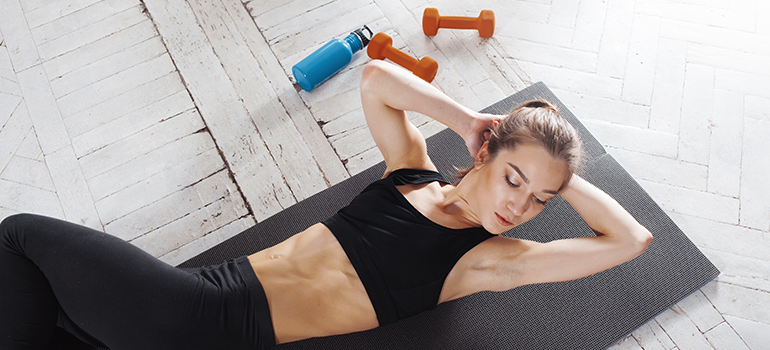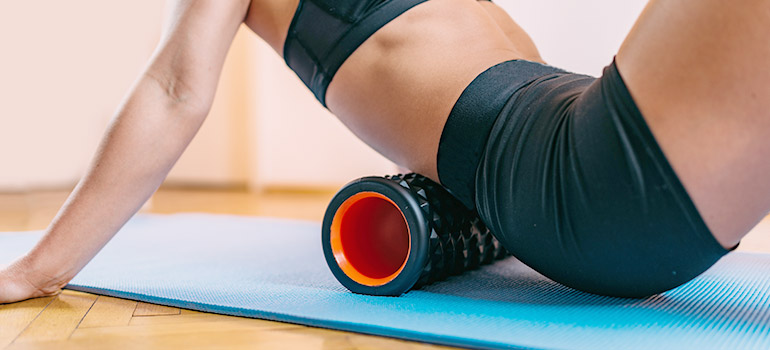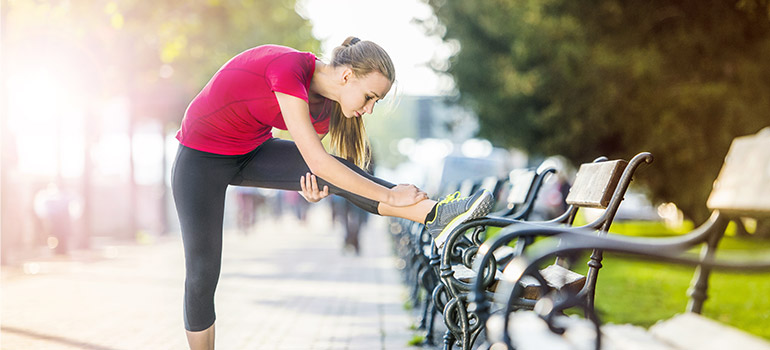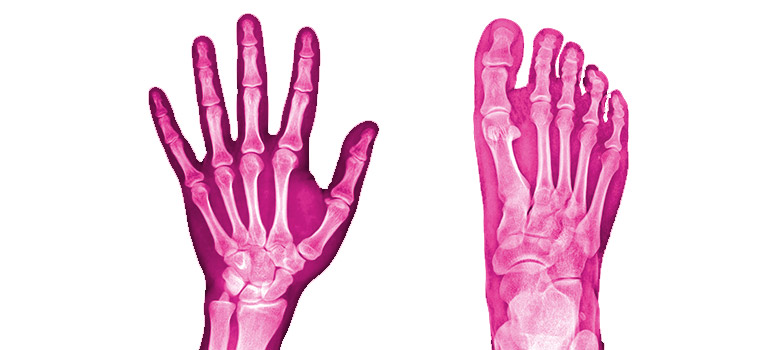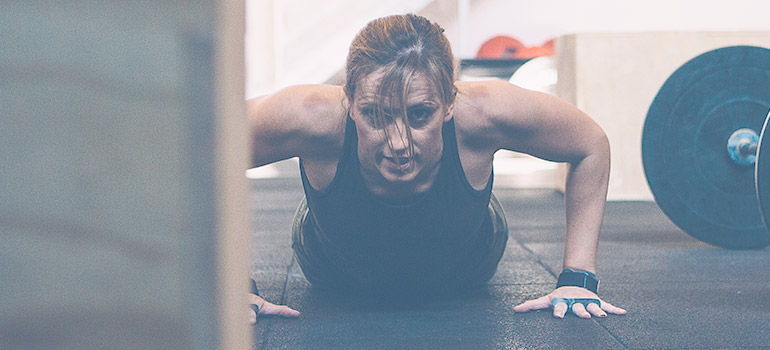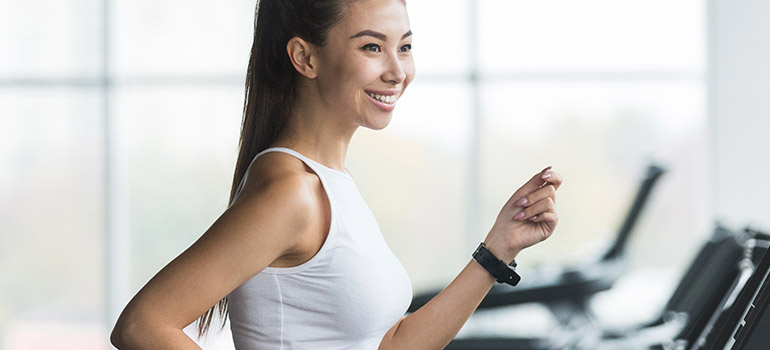Stretching could be the missing piece in your daily fitness routine. In as little as 10 minutes a day, you could be reaping the many benefits of stretching.
Whether you’re stretching before a LadyBoss® Pocket Personal Trainer workout, stretching after a run, or sometime during your day, you’re going to feel the difference in your body.
Different Ways to Stretch
It’s important to know that there are different types of stretching techniques. The most common types are static stretching and dynamic stretching.
During dynamic stretching, movement takes place while blood flow increases to your muscles as they prepare to stretch and work. This type of stretching typically takes place at the beginning of your workouts, before you warm up your body.
The second common way of stretching is static stretching. For this type of stretch, muscles should be warm.
It is common to use static stretching after a workout, even a short 10-minute workout. During static, post-workout stretches, you lengthen and hold your muscles for 30 seconds to 2 minutes. The stretch shouldn’t hurt but should give you an opportunity to breathe and soften the muscles over the course of the static hold period.
Think of it this way:
Dynamic = Don’t HOLD
Static = STAY in the stretch and SOFTEN the muscles
Benefits of Stretching
You won’t see magical improvements in your post-workout stretches in one day, but the benefits of stretching compound with consistent attention to tight muscles.
Stretching helps to keep muscles healthy and maintain a full range of motion at the joints. Over time, our muscles shorten and become tight as we go about our day sitting, working out, or even sleeping.
With a regular stretching routine you can expect:
- Reduced injury risk.
- Improved physical performance by preparing your muscles for activity.
- Improved posture. Tight muscles can pull the body’s skeletal system out of alignment.
- Increased flexibility.
- Increased range of motion.
- Less tension and stress.
- A calm mind and body.
Post-Workout Stretches for Beginners
When starting a regular stretching routine, begin slowly. Give your body time to make progress. Stretching too hard, too soon can cause injury and set you back further than when you began.
Use the acronym COBS for safe stretching practice.
Cold muscles: Stiff, cold muscles aren’t ready for stretching. The best time to stretch your muscles is when they are warm and blood flow is increased. If you aren’t stretching after a workout, be sure to perform some movement for 5-10 minutes (walking, dancing, etc.) to prepare your muscles before performing any static stretching.
Over-stretching: Stretching takes time. Don’t be tempted to stretch the same muscle groups multiple times each day to speed up the process. If you do that, you risk overstretching and muscle tissue damage.
Bouncing: Bouncing during a stretch increases your risk of injuring the muscle. A sensory organ, known as the golgi tendon organ, is responsible for signaling the brain when a stretched muscle has reached its endpoint. This signal from the GTO to the nervous system protects you from stretching too fast and hurting yourself. Bouncing during stretching doesn’t allow this reflex response.
Straight to pain: Stretches aren’t always comfortable. It’s normal to feel some tension and slight discomfort when stretching, but you should never feel pain. Do not stretch straight to pain. Begin slowly coming into the stretch, finding the tension, feeling the stretch and then holding for a few breaths. As your body softens the muscle, you can move deeper and deeper into the stretch as your body continues to relax the tightened muscles.
Be sure to include time for stretching whether you work out at home or the gym.
Post-workout stretches help prevent and ease muscle soreness. It’s recommended to add 10-15 minutes of static stretching to your cool-down routine at the end of your workout. Hold each stretch for 30 seconds to 2 minutes.
Post-Workout Stretches
Leg stretches for the quadriceps (front top of leg)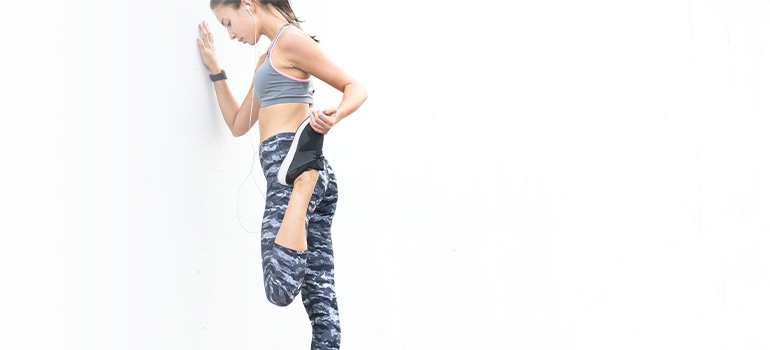
Stand tall, using a wall or sturdy chair for support. Reach back and grab your left foot with your left hand. Keep your thighs zipping together, knees close and gently pressing your hips forward. Repeat on the right side.
Leg stretches for the hamstrings and calves (back of leg)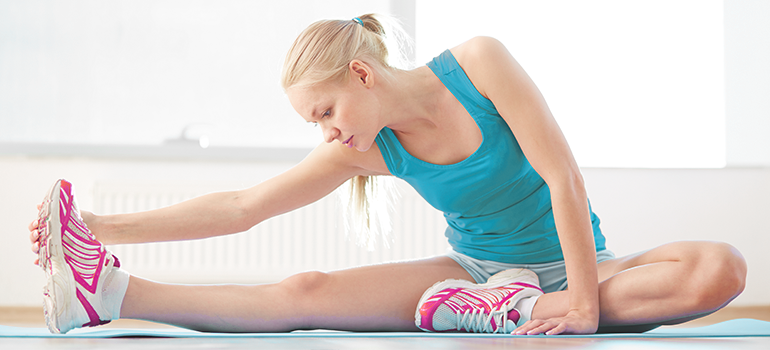
In a seated position on the floor, extending right leg out in front of you as you rest your left foot against the inside of your right leg to form the number “4” with your legs. Reach toward your right foot, hinging from the hips, not rounding in the back. Repeat on the other side.
Abdominal Stretch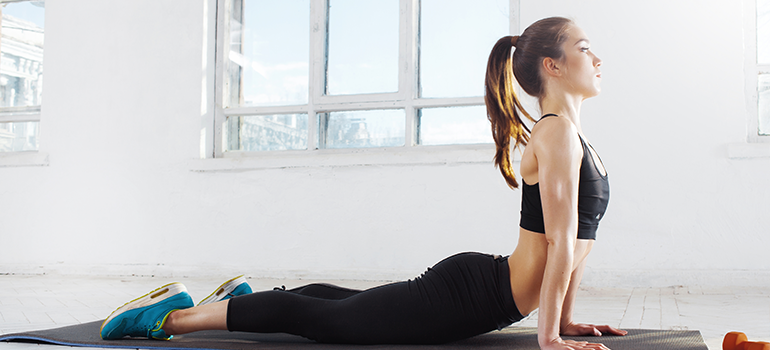
Lying face down on your yoga mat, place your hands on either side of your chest. Slowly extend your arms to bring your chest off the floor, keeping shoulders pressing down and away from your ears.
Chest and Bicep Stretch
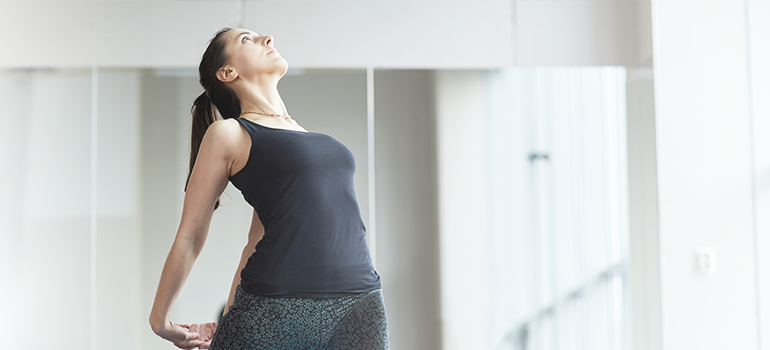 Stand tall and clasp your hands behind your back, arms straight. Deepen the stretch by slowly drawing your hands away from your tailbone as thumbs press together. Shoulders relax down and away from your ears.
Stand tall and clasp your hands behind your back, arms straight. Deepen the stretch by slowly drawing your hands away from your tailbone as thumbs press together. Shoulders relax down and away from your ears.
Don’t Skip Post-Workout Stretches
It takes very little time to add a few stretches to the end of your workout routine. In doing so, you’ll be easing soreness, preventing injury and so much more. Don’t skip another opportunity to reap the benefits of stretching!


